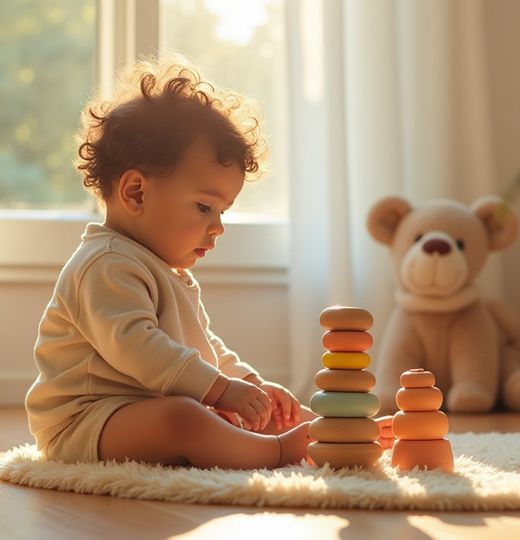Our Story



Circadian Nest began with a personal health crisis.
After years in the corporate world, I burned out. Constant screen time, artificial light and overstimulation destroyed my sleep, mood and focus. To heal, I studied circadian biology —-and what I discovered was alarming.
Artificial blue light and disrupted daily rhythms are directly linked to mood disorders, sleep dysfunction and cognitive decline in adults.
Then I found the research on children.
- Children absorb up to 45% more blue light than adults
- Their melatonin is suppressed twice as much
- Just one hour of bright artificial light before bed can severely disrupt sleep
- Their brains and hormones are still developing - making them even more vulnerable
If this environment damaged me as an adult…
what is it doing to developing children?
That question became personal when I looked at my niece and nephews. They were spending 8–10 hours a day in nursery and school under fluorescent lights, constant noise and artificial stimulation. I saw early signs of hyperactivity, mood swings and poor sleep.
These were not behavioural issues.
They were biological stress responses to an unnatural environment.
The Realisation
Modern nurseries and schools overstimulate children instead of regulating them.
They are built for convenience and compliance, not for child biology. Artificial light, indoor confinement, sensory overload and rigid schedules all work against healthy development.
No one was solving this.
So I decided to build the solution.


The Birth of Circadian Nest
Circadian Nest is designed around a child’s biology.
We:
- Maximise natural light and outdoor time
- Minimise artificial blue light and harsh overhead lighting
- Protect sleep with a dedicated nap sanctuary using red/amber light
- Regulate the nervous system instead of overstimulating it
- Use nature, grounding and outdoor time as core curriculum
- Design calm, low-toxicity indoor spaces
- Support emotional resilience and cognitive growth
- Meet and exceed EYFS and Ofsted standards with evidence-based practice
This is not an alternative approach.
This is biologically intelligent childcare.
Because the way we raise children today shapes the health of society tomorrow.
And if we do not build a biological model for them, no one will.
